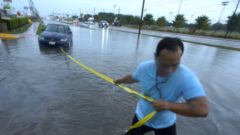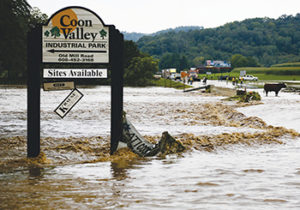America’s summer of floods: What cities can learn from today’s climate crises to prepare for tomorrow’s

By Richard B. (Ricky) Rood, University of Michigan, The Conversation
is an independent and nonprofit source of news, analysis and commentary from academic experts.
Powerful storms across the South, following flash floods in Dallas, Death Valley, St. Louis, Yellowstone and Appalachia, have left cities across the U.S.
Great Lakes Now
https://www.greatlakesnow.org/2022/09/americas-summer-of-floods/



